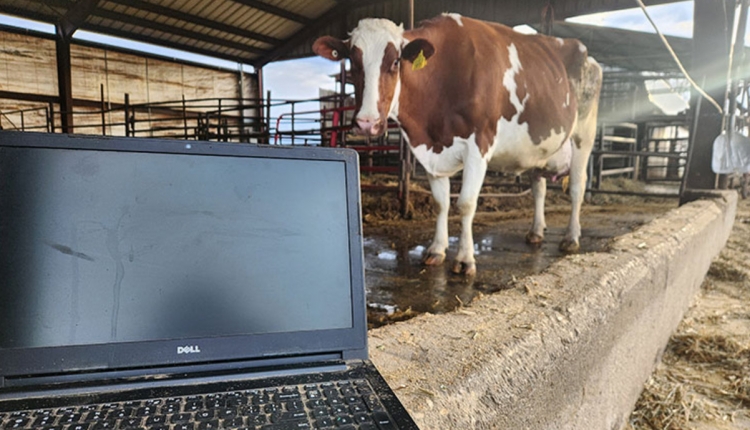 With record corn prices (resulting in record bean, alfalfa, other crops, land, and fertilizer prices), why on earth should we convince someone to dairy?
With record corn prices (resulting in record bean, alfalfa, other crops, land, and fertilizer prices), why on earth should we convince someone to dairy?Gary Sipiorski, a Hoard's Dairyman business columnist, asked this exact question to a room of over 150 attendees at the annual Wisconsin Dairy Field Representatives (WDFR) conference. The program included the economic outlook from Sipiorski, an update on antibiotic residues, and a robotic milking panel.
What's dairy's future?
Sipiorski started his economic outlook by setting the stage for why agriculture is so promising. He noted that 1.5 billion people go to bed hungry each night. The earth will grow from about 7 billion people today to 9.1 billion in 2050. In other words, we've got many tummies to fill and will continue to as time goes on.
Not everything was rosy, however. "Greece has over a 20 percent return on investment, why aren't you investing your money there?" Sipiorski quipped. The crowd was shown the percentage of default risk for many countries. Greece topped the list at a 94.97 percent chance, followed by Portugal, 60.94 percent; Argentina, 51.05; and finished with Venezuela, 49.90; Ireland, 46.63; Ukraine, 45.25; and Italy, 46.63. The U.S. was at 3.42 percent. While all countries seemed to be in some sort of trouble, only Norway is taking in more than it is spending.
With the macroeconomic information behind us, Sipiorski asked this year's WDFR field representative of the year, Curt Horman, what he should say to a dairyman who thinks he's going to sell out and go all crop. Horman didn't have a good answer, and in today's economy, who can blame him for the microeconomic decision?
But Sipiorski then showed that, on an acreage basis, dairy still wins today. He noted that the record land purchase of $20,250 per acre (on 74 acres) in northwest Iowa went to a dairy producer.
Here's how profit plays out on a per-acre basis –
Corn:
One hundred fifty bushels per acre and $6 corn equals $900 income, but net per acre of $200 after considering $550 expenses and $150 land cost. Still, $200 per acre looks pretty good.
Soybeans:
We do need to grow soybeans now and then, so lets not forget about them. Fifty bushels per acre at $12 per bushel equals $600 for revenue. But after $300 in expenses and $150 land cost, we have a net profit of $150. Still, not too shabby.
Why on earth would anyone want to own a dairy?
Milk:
Average of 24,000 pounds * $18/hundredweight = $4,320.
At a 33 percent cull rate and $800 cull cow, ($800/3) = $266.
With 50 percent of bull calves at $50 each, that's a gross total of $4,636 per cow.
Expenses come to $3,941, leaving a net of $695 per cow.
That $695 net should be divided by 3 acres for forage, grain, and youngstock, equals $231 per acre.
While we realize economics and fixed costs are different for everyone, maybe being a dairy farmer in these financial times isn't so bad after all.









